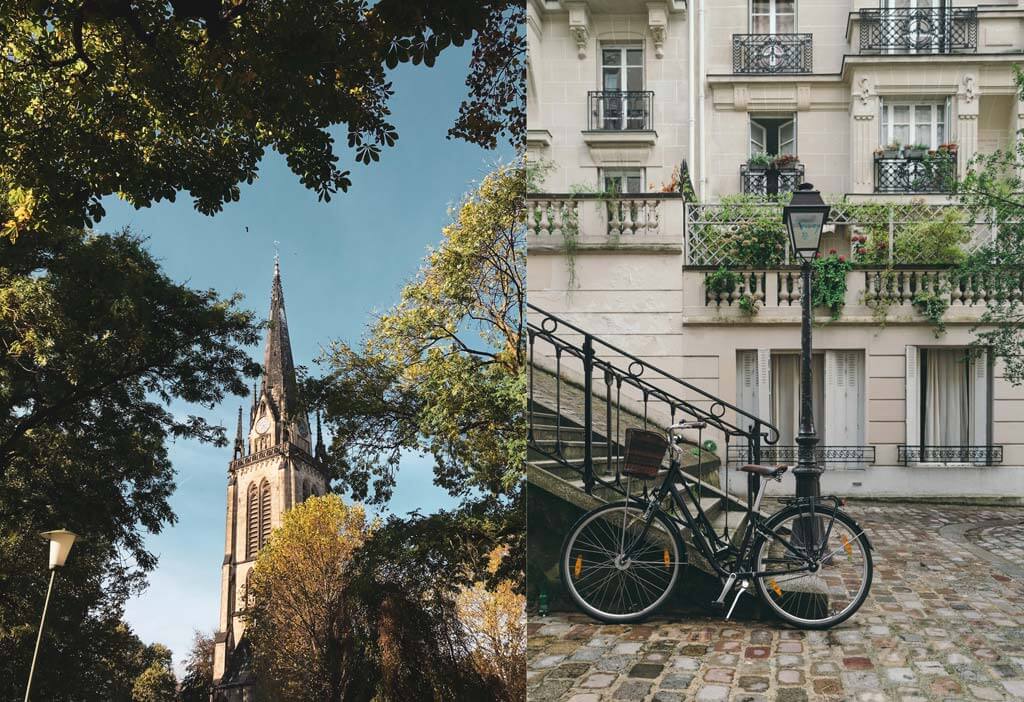Letters from Paris and Kassel
by Julia Roy-Stäblein and Gertraud Schlesinger-Kipp
March 17, 2020
Paris, France
Dear colleagues,
I’m a candidate in Paris, and it is so great to hear all of you. Weirdly, this makes us, virtually, connect more. Why are crises necessary to create the motivation of gathering and coming together as a community?
For me, it’s not so easy to be a psychoanalyst learner and to already, so early, be faced with such massive changes in the normal working rules. After the attacks, psychoanalysis has had to endure. On the other hand, they follow the changes we, the new generation of psychoanalysts, are already incarnating. I feel, in a certain way, confident enough also. Psychoanalysis builds in us such a nice and solid house. It is this house that protects me against these hurricanes and the force of our network and common will for our patients.
I chose the phone, like many colleagues here. There’s something that I find very fake on video, and too exciting, with the exhibitionism trend and internet, such as YouTube, etc., has put into images and videos.
I prefer dealing with the reality of the physical separation. I am more present vocally to deal with the silence that, indeed, can be very cruel. Also, the session are only 30 minutes. So this period of therapy is going to be special. I can already see it brings very specific, but also extremely core, points of my patients’ problems. But it’s so condensed and quick that it’s not easy to treat and answer that very precious and hot material.
It’s a lot to think about and it’s not easy to think when we’re trapped in a traumatic reality, on the same level as our patients.
I’ll continue reading these exchanges. They are really helpful.
Many thanks, dear colleagues.
And to make a little joke as I am a fan of Star Wars: May the force be with you!
All the best,
Julia Roy-Stäblein
P.S. Sorry, I might have made mistakes with the English. I hope it is still understandable though!
March 18, 2020
Kassel, Germany
Dear Julia, you are writing so beautifully that I would like to answer you personally. I think that for young analysts, it might be even easier to adapt because we, as senior analysts, have gotten used to our rituals for so long that it is even harder to change. On the other hand, we don’t have to pass exams anymore, unlike you in training, and feel, therefore, more free. But as a training analyst, I am always also learning from my supervisees, so I am also learning in this crisis.
Best,
Gertraud Schlesinger-Kipp
March 18, 2020
Paris, France
Dear Gertraud,
Thank you so much for this reassuring answer. It’s true that it’s easier for new psychoanalysts to adapt to these differences. But it’s tricky. We can fear getting too far into transgressing the limits of the appropriate shape of psychoanalysis, and not being good psychoanalysts anymore.
What you say shows that the best way to evolve is to continue learning how to give the best to our patients, while, at the same time, making sure we’re not falling into a terrible trap of transgressing the appropriate rules for our patients’ best benefits. And sharing with colleagues our various experiences is the best way of doing this.
I hope the situation in Germany is not too hard and wish you all the best.
Julia Roy-Stäblein
-
Julia Roy-Stäblein is a psychologist and psychoanalyst in private practice who works at the Centre de psychanalyse et de Evelyne and Jean Kesternberg Psychoanalysis and Psychotherapy Center at the Mental Health Association of the 13th arrondissement of Paris (ASM 13).
-
Email: juliaroy242@gmail.com
-
Gertraud Schlesinger-Kipp is a psychologist, psychoanalyst, and training analyst of the German Psychoanalytical Association (DPV, IPA), former president of DPV, former member of IPA Board, and member of COWAP and Migration and refugees committee.
ROOM is entirely dependent upon reader support. Please consider helping ROOM today with a tax-deductible donation. Any amount is deeply appreciated. |





